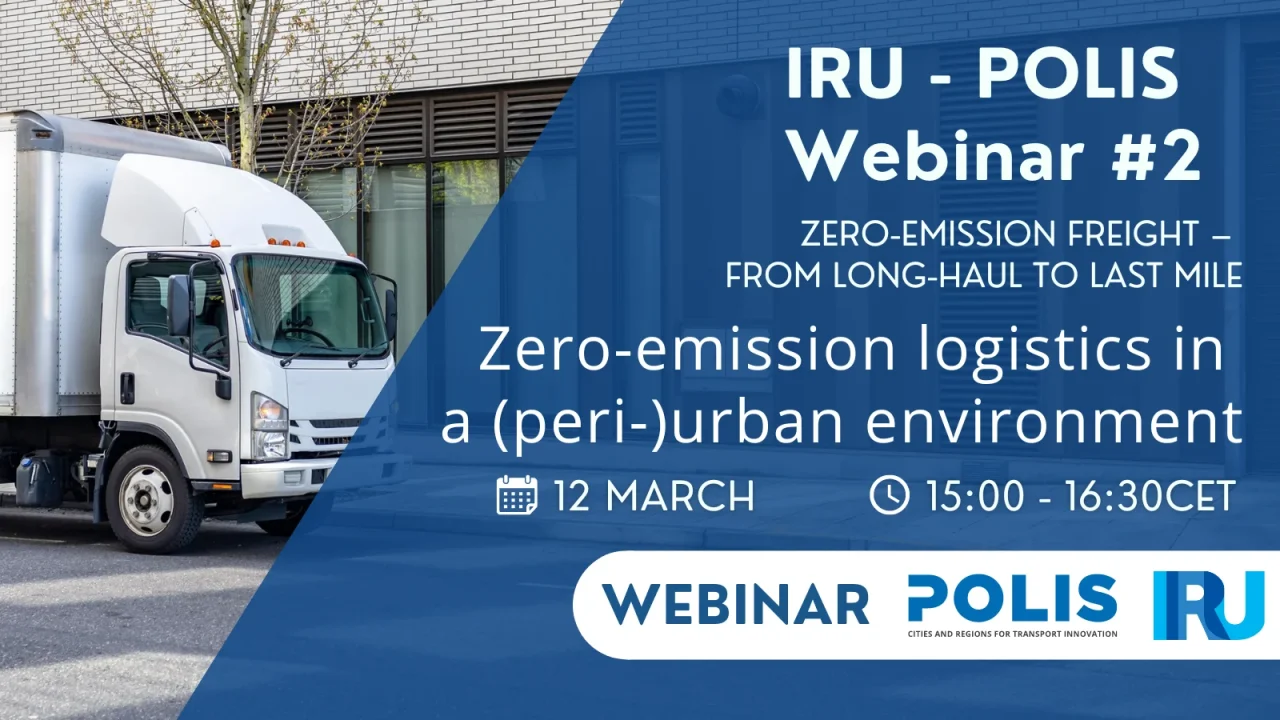Decarbonising logistics: Hydrogen & battery-electric truck pilots presented during second IRU-POLIS webinar
In the second of a three-part webinar series, IRU and POLIS brought together European leaders working to achieve carbon neutrality in road freight transport in and around cities. The group debated key issues on the complex road to 2050. If you are interested in the element of energy infrastructure for zero-emission heavy-duty vehicles, register for the third webinar on 16 April here.
IRU and POLIS, working together on research and innovation projects to decarbonise road transport, have joined forces in a three-part webinar series to exchange perspectives between a wide range of people on the challenging path to net-zero emissions.
The second of the three events united leaders from Europe’s road freight industry and its cities and regions, all focused on enabling and encouraging zero-emission logistics in urban and peri- urban environments.
Key challenges debated in the webinar included the frictionless transport of goods, access to consumers, and the reduction of air and noise pollution. Furthermore, the focus was set on two AEVETO cluster projects that pilot zero-emission freight technology: NextETRUCK and H2Haul. Whereas POLIS is involved in the former, IRU is part of the H2Haul consortium.
NextETRUCK, which was presented by Steven Wilkins (TNO), aims to test medium-sized battery-electric zero-emission heavy-duty vehicles in peri-urban areas in London, Barcelona and Istanbul. The tested elements include megawatt charging solutions, digital twinning tools to predict charging patterns, as well as new powertrain solutions.
H2Haul is currently deploying fuel-cell trucks in Belgium via the retail company of Colruyt, while further tests are planned of a total of 16 prototypes of hydrogen trucks in Belgium, France, Germany and Switzerland.
Webinar Recording


